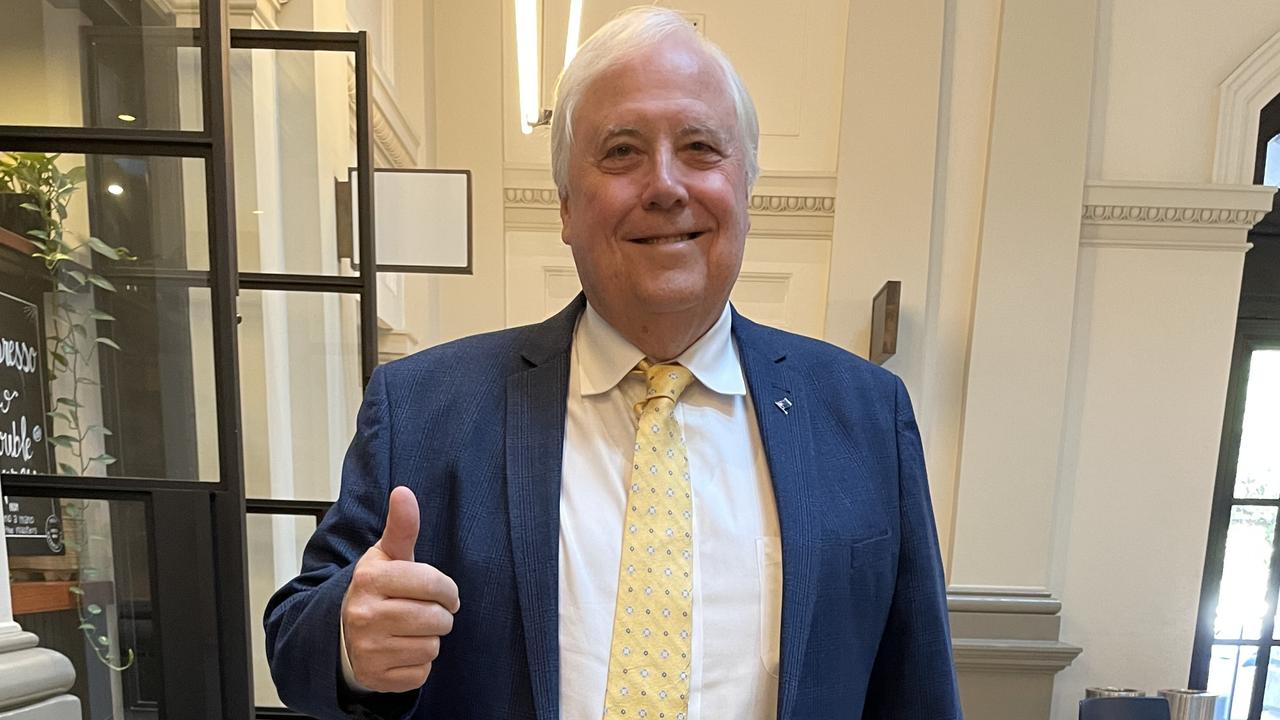Budget a missed opportunity on tax reform, business and industry says
Incentives and tax cuts will do little to fix the big problem facing Australian business, leaders say.

Tax breaks will give a boost to business and workers, but the Albanese government has missed an opportunity to push ahead with more substantial tax reform, business leaders and industry experts say.
Australia needs to drive productivity improvements, or it risks pushing manufacturing offshore, Mondelez Australia chief executive Darren O’Brien warned.
“What we need are coherent, long-term strategies and well-thought-out policy settings that provide greater certainty for investment and drive productivity. We don’t need blame shaming. We need more incentives for capital renewal, innovation, and productivity which are crucial to offsetting the growing cost of other inputs,” Mr O’Brien said in a speech in Melbourne on Wednesday.
“Productivity must be our primary focus. To thrive in today’s competitive landscape, we must drive more output at lower costs with strategic investments in capital, automation, and infrastructure.
“Unfortunately, there’s been a concerning lack of attention to these critical areas, with little evidence of long-term planning to unlock productivity gains over the next decade.
“If we don’t unlock productivity gains, one thing is for sure: it just gets more and more expensive to manufacture in Australia, which either leads to continual escalation of prices, or people will start to search for productivity by offshoring manufacturing to lower cost environments. We can’t operate in budget or election cycles, we need to plan for the long term.”
Wesfarmers managing director Rob Scott said it was critical to unlock business and worker potential to manage inflationary challenges and build national prosperity.
“This is important as domestic costs-of-doing-business pressures remain a challenge,” he said.

Mr Scott also called on federal and state governments to work together on tax reform.
“There are further opportunities for tax reform that can drive significant benefits, like stamp duties which add to the cost of housing and reduce mobility of workers, not to mention payroll taxes which are a tax on jobs,” Mr Scott said.
“The Commonwealth could consider ways to incentivise states to remove or amend these damaging taxes over time, knowing it will benefit from the higher wages, earnings and investment that will arise.”
Australian Chamber of Commerce and Industry CEO Andrew McKellar said improving productivity should be a top priority.
“While the rate of increasing input costs has moderated in recent quarters, businesses have faced significant pressures as a result of supply chain constraints over the past year. Energy costs remain high and rising wages are now adding more into cost pressures,” Mr McKellar said.
“The overriding factor of concern is that we have not seen increased productivity to offset those pressures. With a stronger focus on productivity, Australia can be a competitive location for manufacturing. That is the number one priority.”
Instead of embarking on much-needed reform, the government had opted for a tax crackdown, BDO Australia tax partner Mark Molesworth said.
“The government is setting out its priorities by where it’s spending its money, but one of those priorities is not looking after the revenue collection side of the equation.
“The Treasurer is banging on about consecutive surpluses, but he’s really banking on the benefits of high commodity prices and not using those funds as a bridge to reforming the tax system,” Mr Molesworth said.
“Any reform of the tax system is potentially going to have a period of reduced revenue, particularly if you’ve got to compensate taxpayers who will be worse off under that reform. He could be choosing to use some of this additional collected revenue as a bridge to that reform, but has chosen not to.”

Included in Tuesday’s budget papers was a $15bn cash splash for hydrogen production and critical minerals processing, in a major stimulus push aimed at unlocking private spending in the sector.
Branding these incentives as tax reform was a sign of the government’s reluctance to look at the big picture, Mr Molesworth added.
The upcoming stage three tax cuts, meanwhile, which provide for most of the cost-of-living relief handed out to workers by Treasurer Jim Chalmers, only address bracket creep, with meaningful tax reform left on the sidelines, Bendigo Bank chief economist David Robertson said.
“We need an uplift in productivity, and that will require quite ambitious tax reform. It’s understandable (this time) given we’ve got an election coming up, but I’d argue we’ve had a decade and a half without any ambitious structural tax reform,” Mr Robertson told The Australian.
The Tax Institute said the budget was a missed opportunity.
“Under the current cost of living crisis, we welcome stage three tax cuts and the relief it will bring to Australian bank accounts come 1 July. However, we do not view the tax cuts as a long-term solution to the problem, instead they are a temporary bandage on a broken system,” The Tax Institute CEO Scott Treatt said.
“There was a focus on compliance in this year’s budget, with increased funding for a range of taskforces. We have long called for the end of the overreliance on these temporary taskforces to manage compliance. Instead, we call for better base funding for resources which will be able to provide the right level of advice and guidance to support all taxpayers.”
Industry group Chartered Accountants Australia and New Zealand said it would keep pushing for substantive tax reform, as well as a road map to get there.
“The structural deficit means it’s well and truly time to discuss the sustainability of Australia’s heavy reliance on personal income tax collections.
“We again urge policymakers to keep an eye on the international competitiveness of our personal tax system,” CA ANZ boss Ainslie van Onselen said.
While industry bemoaned the lack of substantive tax reform, a tax crackdown on foreign investors also got some attention.
“It looks like they’re going to change the definition of what taxable Australian property is and what nonresidents actually pay Australian capital gains tax on,” BDO’s Mr Molesworth said.
“There are also additional notification requirements. At the moment, if you’re selling land, you’ve got to tell the tax office before you sell, but if you’re selling shares or units in a unit trust, you don’t have to tell the ATO in advance. Now, if you’re selling shares for more than $20m, you will have to tell the ATO that you’re doing it in real time.”





To join the conversation, please log in. Don't have an account? Register
Join the conversation, you are commenting as Logout